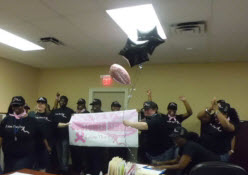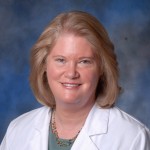 All State Van Lines Relocation is a moving brokerage firm based in Margate, Florida, that coordinates residential and corporate moves and relocations for long-distance moves, nationwide. In this interview, All State Van Lines Relocation describes their Customer Service Appreciation Week to celebrate employees.
All State Van Lines Relocation is a moving brokerage firm based in Margate, Florida, that coordinates residential and corporate moves and relocations for long-distance moves, nationwide. In this interview, All State Van Lines Relocation describes their Customer Service Appreciation Week to celebrate employees.
Interviewing Experts: We understand you all did something a little unusual recently?
All State Van Lines Relocation: Yes, we decided to take a little time away from the hectic pace of the moving industry to show appreciation to our employees.
Interviewing Experts: You wouldn’t get too far in the moving industry without your employees, right?
All State Van Lines Relocation: That’s for sure. Each All State Van Lines Relocation employee has to go through a rigorous training process, and we just wanted to show our appreciation for their hard work.
Interviewing Experts: Did you have a theme?
All State Van Lines Relocation: Yes, we called the weeklong activities “Be the One” and came up with a full week of fun events to get the staff involved and build company spirit.
Interviewing Experts: Was it just for customer service employees?
All State Van Lines Relocation: No, the whole company took part, but customer service is the heart of All State Van Lines Relocation—the folks who greet customers, take phone calls, and handle emails. And even though it also happened to be International Customer Service Week, we tried to give it a unique spin.
Interviewing Experts: What kinds of things did you plan?
All State Van Lines Relocation: Monday started off with a free continental breakfast. Everybody enjoyed the pastries, waffles and eggs.
Interviewing Experts: And Tuesday?
All State Van Lines Relocation: The next day we challenged the employees to see who could wear the nuttiest, most outlandish hat. People really went for it and the building was filled with folks wearing all kinds of goofy headgear.
Interviewing Experts: We heard there was a big All State Van Lines Relocation Sports Day?
All State Van Lines Relocation: Right! On Wednesday everybody got to brag on their teams as they were invited to wear their favorite team jersey. People really got into it.
Interviewing Experts: And you still had two more days to celebrate?
All State Van Lines Relocation: Thursday was Wacky/Tacky Day when everybody wore bright, mismatched outfits, and Friday was Department Color Day. For that event, each department within All State Van Lines Relocation was assigned a certain color to wear. The customer service department got the award for Most Coordinated because they all looked so swanky in black.
Interviewing Experts: And some things lasted all week, right?
All State Van Lines Relocation: We incorporated daily raffle prizes, different word games, and an essay competition.
Interviewing Experts: Why did you go to so much effort?
All State Van Lines Relocation: Our primary goal is to attain the highest level of customer satisfaction, and we’re aware that can’t happen unless our employees feel secure and content in their jobs.
Interviewing Experts: And that builds a happier team, I’m sure.
All State Van Lines Relocation: Right. This is the type of event where we got to mix with our employees in a different way and reestablish that bond that makes All State Van Lines Relocation so successful.
